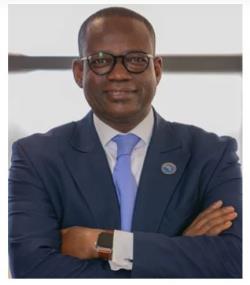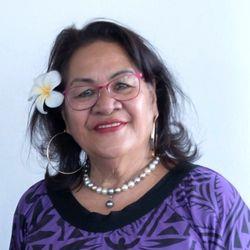Powering Digital Futures: Data Governance - Navigating Data in the Digital Age
UNESCO, UNDP, ITU
Session 517
Global Launch of the Broadband Commission for Sustainable Development Data Governance Toolkit
As the digital era continues to evolve at a rapid pace, the governance of data has emerged as a critical policy priority. From managing cross-border data flows to enabling responsible AI development, countries and stakeholders navigate increasingly complex and fragmented digital ecosystems.
In response, the Broadband Commission Working Group on Data Governance—co-chaired by UNESCO, ITU, UNDP, and the African Union—has developed the Data Governance Toolkit: Navigating Data in the Digital Age, a practical resource designed to support governments and institutions in building inclusive, rights-based, and future-ready data governance frameworks.
This session marks the official global launch of the Toolkit and will convene leading voices from government, industry, and civil society to discuss emerging data governance challenges and opportunities, and to reflect on national and institutional strategies.
Session Objectives
1. Launch of the Broadband Commission Data Governance Toolkit
2. Discussion on the importance of data governance in navigating the digital age and the need for a multistakeholder perspective from governments, businesses, civil society, international organizations.
3. Discussion of way forward and how the Data Governance Toolkit can support capacity building to empower policymakers, regulators and data practitioners implement inclusive, ethical and interoperable data governance



.jpg?maxwidth=250)



.png?maxwidth=250)




-
 C1. The role of governments and all stakeholders in the promotion of ICTs for development
C1. The role of governments and all stakeholders in the promotion of ICTs for development
-
 C3. Access to information and knowledge
C3. Access to information and knowledge
-
 C4. Capacity building
C4. Capacity building
-
 C5. Building confidence and security in use of ICTs
C5. Building confidence and security in use of ICTs
-
 C6. Enabling environment
C6. Enabling environment
-
 C11. International and regional cooperation
C11. International and regional cooperation
This WSIS Forum 2025 session directly supports the WSIS Action Lines by promoting inclusive, ethical, and future-ready data governance. It aligns for example with C1 (public governance) through multistakeholder collaboration, C4 (capacity building) by empowering policymakers with the new Toolkit, and C5 (trust and security) by addressing responsible data use. It also advances C6 (enabling environment) and C11 (international cooperation) through global partnerships and policy guidance for managing data in the digital age.
-
 Goal 4: Ensure inclusive and equitable quality education and promote lifelong learning opportunities for all
Goal 4: Ensure inclusive and equitable quality education and promote lifelong learning opportunities for all
-
 Goal 16: Promote just, peaceful and inclusive societies
Goal 16: Promote just, peaceful and inclusive societies
-
 Goal 17: Revitalize the global partnership for sustainable development
Goal 17: Revitalize the global partnership for sustainable development
This session supports the Sustainable Development Goals (SDGs) by advancing inclusive and ethical data governance. It contributes to SDG 16 (Peace, Justice and Strong Institutions) by promoting transparent and accountable data practices, and to SDG 17 (Partnerships for the Goals) through global collaboration among governments, UN agencies, and civil society. It also supports SDG 9 (Industry, Innovation and Infrastructure) by fostering resilient digital ecosystems, and SDG 4 (Quality Education) through capacity building for policymakers and data practitioners.
- Objective 3: Foster an inclusive, open, safe and secure digital space that respects, protects and promotes human rights
- Objective 4: Advance responsible, equitable and interoperable data governance approaches